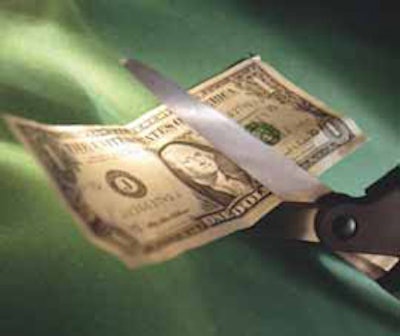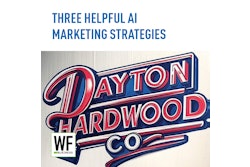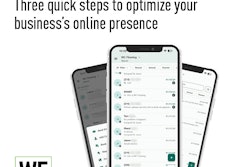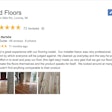

Looking back, I suppose I took double-digit real estate appreciation, quarter-over-quarter increases in housing starts and a strong U.S. dollar for granted. I do not believe any of us thought the economy would stay that strong forever, but the slowdown occurred very abruptly in many markets and left many small- and medium-sized hardwood flooring business owners asking the same question: "How do I remain profitable in a new economy?"
The basic principles of profitability explain that revenue must be greater than costs to be profitable. However, as many of us have learned, this is much easier to discuss than to implement. None of us strive to have our businesses simply break even, and even when economies and industries slow down, we can still be profitable. Generally, this means that we will have to make some changes: either increasing revenues or decreasing costs. Financial agility allows businesses large or small to remain profitable when the markets change. When we have our teams focused on increasing sales and maintaining margins, it's time to focus on costs.
Business Costs
Costs can be classified as variable or fixed. Variable costs are those that increase or decrease as your business volume changes, such as materials, supplies and payroll. Fixed costs are those that do not increase or decrease as your business volume changes, such as insurance, vehicle and equipment leases, rent and debt payments.
Uncontrolled fixed costs have caused the demise of many businesses. As markets change, if sales volumes or margins cannot keep up with costs, the result is detrimental. Variable costs are usually the first costs that businesses look to manage, because they think variable costs are easier to control and will provide a short-term solution for business changes. Some business owners feel trapped by fixed costs, as many are contractual obligations. While managing fixed costs takes more creativity and flexibility than variable costs, with some forethought and occasional help from service providers, they can be managed and reduced.
Insurance Assurance
Insurance of all kinds—property, workers compensation or health—can be some of the largest fixed costs businesses encounter. Property insurance seems to be an afterthought for many businesses and is only contemplated once an event has occurred that triggers a claim. I have found that one of the best ways to shop for property insurance rates is through an experienced, reputable broker, because you do not have to become an insurance expert to ensure you are adequately covered.
Workers compensation insurance requirements vary from state to state, but for most companies it is a mandatory expense.
Typically, base rates are determined by industry or trade averages of claims, and then your individual company claims are factored in. In my experience, the amount, type and frequency of your company claims have the greatest impact, either positive or negative, to your rates. Companies that manage claims through effective safety programs typically have lower premiums. Also, consider using a deductible on your policy and paying for small injuries out of pocket to keep claims off of the policy. Knowing what your carrier requires for safety discounts and what types of deductible plans are available may greatly reduce your workers compensation insurance costs.
Rising health insurance costs is a universal concern. One of the most effective ways to manage these costs is to remain flexible. Look at different types of plans offered, including those that may not have the same benefit levels you currently offer. Look at deductible plans, which may decrease your costs. In desperate times, consider self-insuring or not providing insurance. Remember that just because you reduce benefits to employees in the current period doesn't mean you can't increase benefits as business improves again.
Vehicle and Equipment Leases
Most vehicle and equipment leases are written to benefit the lease company, however, many contain clauses that allow an early exit. It may be necessary to consult your CPA or attorney regarding these complex contracts to determine if an early exit makes more sense for your business. For example, if you have a leased piece of equipment that is—and is expected to remain—idle due to decreased demand, consider marketing the equipment to third parties at a discount to relieve you from the monthly payment. For vehicles, there are services and Web sites that allow you to "sell your lease" to parties throughout the United States. While you may need to give a concession up front, in the long run you will be better off.
Rent and Property Leases
Rent and property lease expenses are usually a large part of a company's fixed costs. Lease renewals are very profitable for landlords because they are generally low cost, require no improvement costs, ensure there is no vacancy between tenants and that there is no increase in credit risk from leasing to an unfamiliar party. Depending on the market, I have heard of landlords discounting the lease rate as much as 20 percent to keep a reliable, current tenant. If you are at the end of your lease, negotiate for a better rate. If you have time remaining on your lease, you still may be able to get a better rate by restructuring it. If you are paying above current market rates, you may have some leverage with your landlord. Typically, you will have the most leverage when you have less than one half of your lease term remaining, the landlord believes that you are going to leave the building at the end of your lease or if you need to expand into more space at the same property or other property owned by the same group.
Debt Payments
Banks are not having a banner year. Profits are down, and in many markets there are new local and national banks moving in every day. As customers of commercial institutions, this works to our advantage because we have more options. Depending on your company's financial condition, your business may be worth much more than expected to a competing bank. In my opinion, finding a good banker is as important as hiring a good CPA or an attorney. Get referrals for a good banker, shop your loan portfolio and openly discuss what you find with your current banker. You may be surprised what your current bank will do to keep your business.
Market conditions can change rapidly, and one of the keys to your business health is your ability to change your approach just as swiftly. Managing your salesforce is important to your company's profitability, but managing costs is equally important. Ask your CPA, banker and insurance broker for ideas. Remaining flexible during tight times is critical to your ability to manage costs and, in turn, boost your profitability.






























